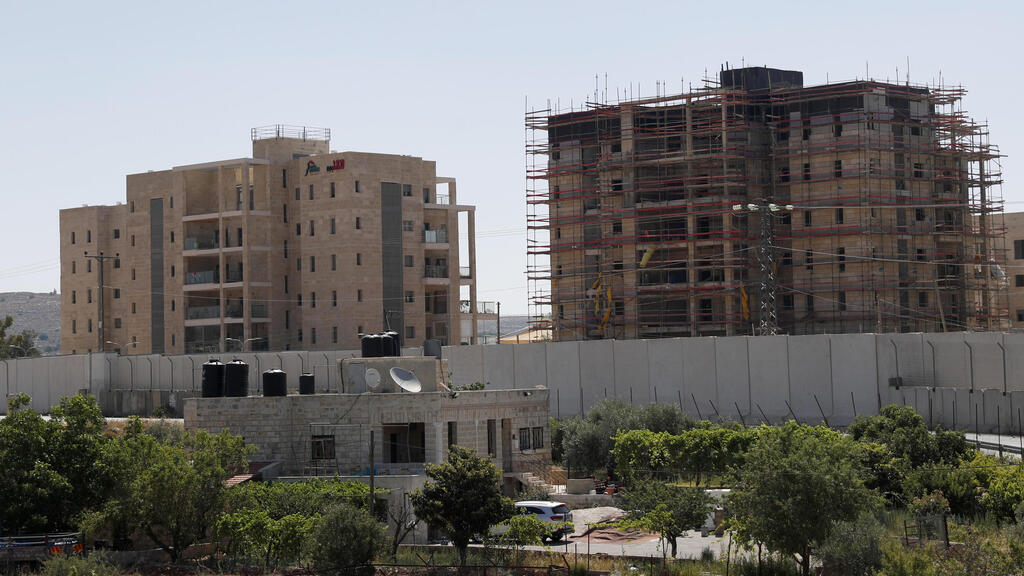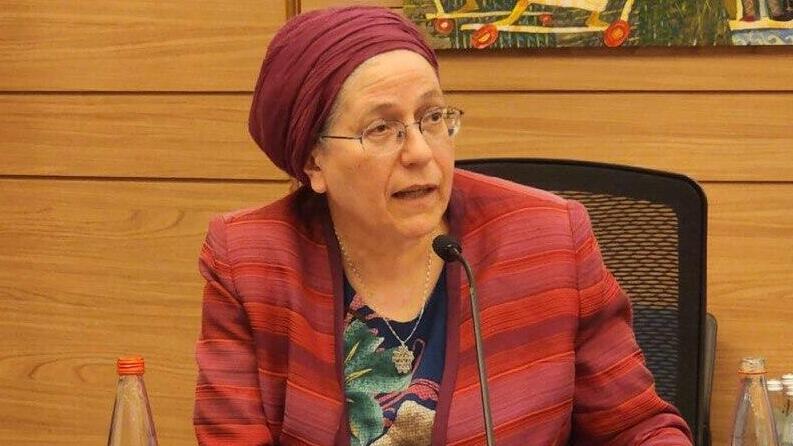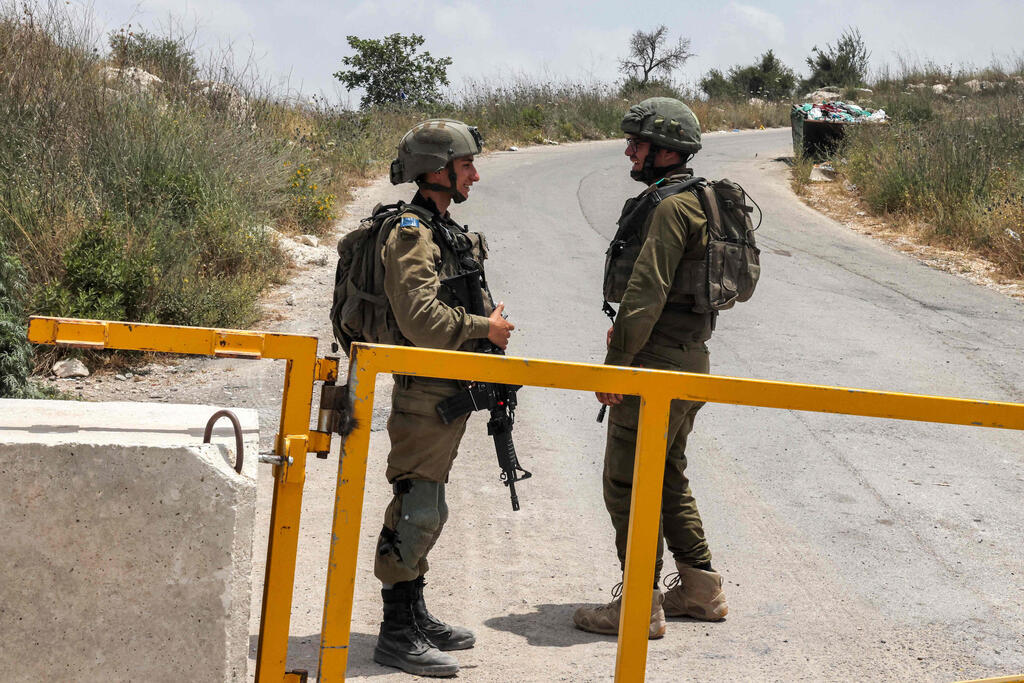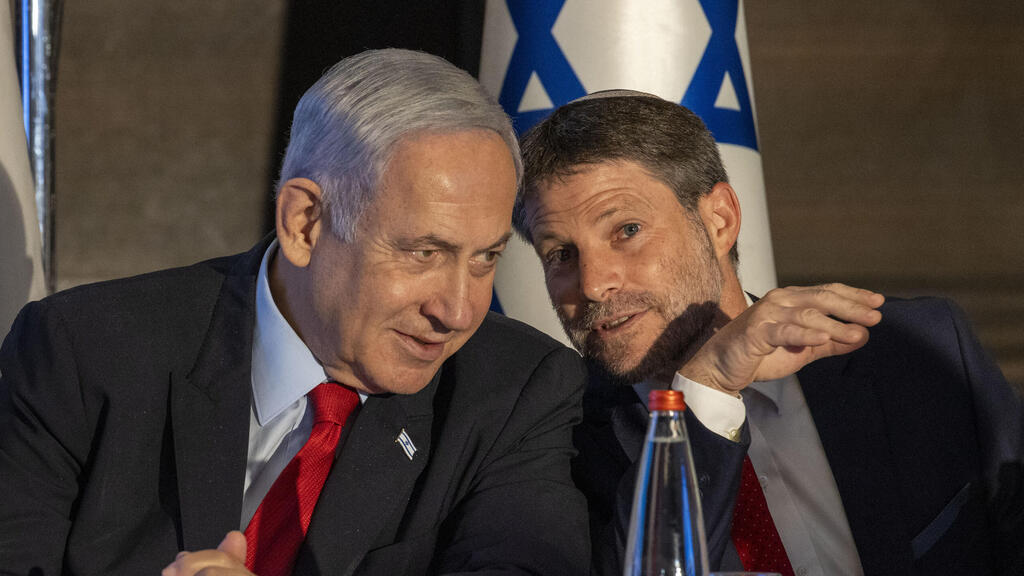The government is advancing an unprecedented plan with a budget reaching nearly a billion shekels, which will be invested in Jewish settlements in the West Bank. Leading the plan is National Missions Minister Orit Strock.
More stories:
According to data obtained by "Calcalist," the plan’s current financial scope stands at 672 million shekels from the 2023-2024 budget, but the cost of some clauses within it have yet to be determined.
Certain aspects of the plan were included in the coalition agreement signed by Benjamin Netanyahu with he Religious Zionist Party and would require the government to redirect funds originally allocated for other purposes to support the new plan. One-third of the funds will come from Strock's ministry budget, while the rest will come from various other ministries, primarily from the Finance, Interior, and National Security Ministries.
Over half a billion shekels to the West Bank
The funds, however, will be invested solely in Jewish residents in Area C of the West Bank, and will not include the Palestinians living nearby, Gaza border communities, or cities in the periphery which are historically underfunded. Government officials estimate that now, following the approval of the reasonableness clause, it will be easier for the government to pass such allocations of funds without judicial review.
The rationale behind the plan is to strengthen the resilience of Israeli settlements in the West Bank. The plan’s stated goal is to provide assistance to Jewish settlements facing terror threats in the area. However, contrary to this official explanation, there are numerous clauses within the plan that appear to be aimed at expanding Jewish settlement in the region, and their relations to the defense against terror are difficult to ascertain.
The plan has a particularly notable section proposing the conversion of five IDF bases in the West Bank for the purpose of constructing new neighborhoods and industrial zones. The exact budget required for this is still unknown but is estimated at hundreds of millions of shekels.
So far, the removal of IDF bases inside Israel has been mainly funded by state revenue generated through the sale of land for the construction of new neighborhoods. This process is regulated by the Shoham 3 agreement, through which approximately 18 billion shekels were invested to relocate the bases.
Those military bases are situated in the heart of the country in areas where housing is in high demand, and so marketing the land has earned Israel billions of shekels. In contrast, development of land vacated by the IDF bases on the West Bank, will likely not generate sufficient income to cover the costs.
According to the draft plan currently being promoted by the government, the removal of West Bank IDF bases will be integrated into the Shoham 4 agreement, currently under negotiation between the Finance Ministry, Defense Ministry, and the Israel Land Authority. In such a case, the income from the bases inside Israel, including in Jerusalem, would cover the potential shortfall that might arise from transferring the bases from the West Bank.
More settlements, Olim, and Jewish education
The removal of five IDF bases is just one clause aimed at promoting settlement growth in the West Bank. It also includes an entire section dedicated to bolstering settlements. The budget for this section hasn’t been finalized, but it also includes preparing construction plans by the Housing & Construction Ministry, the establishment of industrial zones by the Economy Ministry, and the planning of roads by the Transportation Ministry.
In another clause, a budget of 100 million shekels is allocated for community support, construction of public buildings, development of parks, fostering small-scale employment and entrepreneurship, and assistance to newly arriving settlers. The Immigration and Integration Ministry will allocate 12 million shekels for promoting Jewish settlement among potential new immigrants abroad, exposing them to opportunities in the West Bank.
Another section of the plan is focused on promoting education and supporting religious boarding schools in West Bank settlements, with a cost of 137 million shekels. The funds will be used, among other things, for maintaining the schools, the construction of new buildings, and securing transportation in and between the settlements.
The money will enable the expansion of existing settlements and the development of new ones around these educational institutions. Additionally, 37 million shekels will be invested in the infrastructure of what is called the "young settlement," referring to Jewish settlements that were previously considered unauthorized outposts until being recently approved by the government.
Another 184 million shekels are designated for covering security expenses, in addition to the funds that West Bank settlements already receive for the purpose of maintaining their security.
Approximately 220 million shekels of the plan’s budget will come directly from the National Missions Ministry, headed by Strock constituting more than half of the ministry's total budget. The ministry will invest 120 million shekels in West Bank municipalities and regional councils that meet a few conditions set by the plan, claiming that due to their distance from Israel’s center, they require help in bolstering their population.
This part of the plan includes a clause allocating 30 million shekels for renovating buildings used as Jewish study centers. Some 40 million shekels from the ministry's budget will be invested in upgrading infrastructure and public facilities in local municipalities, and 50 million shekels will be allocated for programs to increase the population.
The plan also includes a budget of 45 million shekels for establishing a new hospital in the West Bank, described as a "medical center," but it will include departments such as orthopedics, dialysis, imaging, emergency services, gynecology, pediatrics, audiology, ophthalmology, and specialized physician services, essentially forming an advanced medical complex.
Decisions dealing with dedicated budgets for cities, or as in this case, for a distinct geographical and political region, raise a legal dilemma, if it cannot show that the allocation of funds is done in a way that prevents discrimination between cities associated with a specific political party over other cities, between ultra-Orthodox over secular communities, or between Arab over Jewish communities.
Principles of equality and justice dictate that funds should be distributed based on clear and uniform criteria. There are also legal criteria for areas designated as a national priority that give a head start in resource allocation to border area communities and those with a low socio-economic status.
The program led by Strock goes against these criteria, and its contents don’t align with those intended goals.






